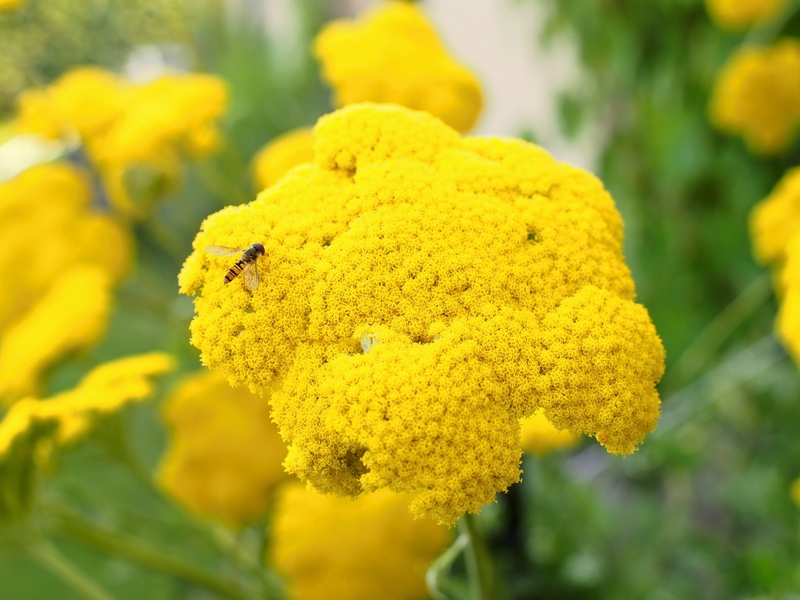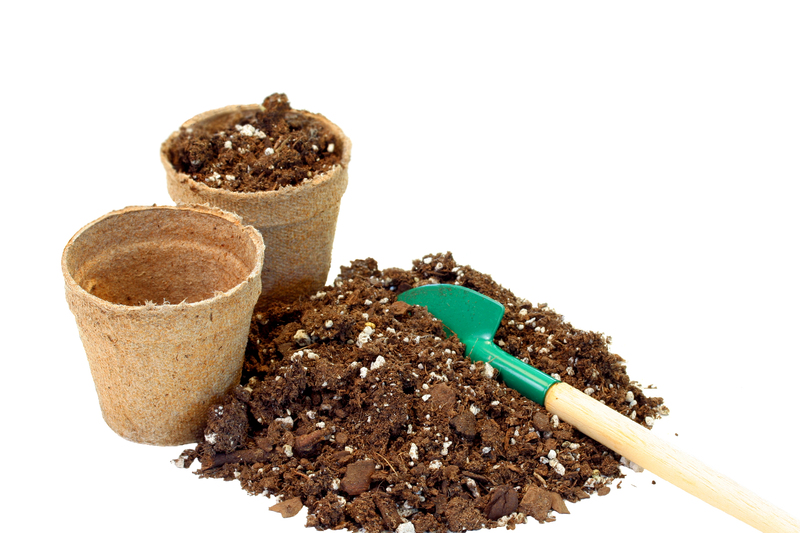Nurture the Earth with Organic Waste Transformation
Posted on 26/06/2025
Nurture the Earth with Organic Waste Transformation: A Comprehensive Guide
Creating a sustainable future starts with transforming the way we handle organic waste. Embracing organic waste transformation not only nurtures the Earth but also ensures healthier communities and vibrant ecosystems. This in-depth guide explores innovative methods, actionable strategies, and the remarkable benefits of organic waste transformation.

What is Organic Waste Transformation?
Organic waste transformation refers to the process of converting biodegradable materials--such as food scraps, yard trimmings, paper, and agricultural remains--into valuable resources. Unlike landfill disposal, which causes methane emissions and soil pollution, effective transformation of organic waste reduces environmental hazards and supports a circular economy.
Common Sources of Organic Waste
- Food and kitchen scraps (fruits, vegetables, eggshells, bread, coffee grounds)
- Yard waste (leaves, grass clippings, branches, twigs)
- Agricultural residues (crop leftovers, manure, straw)
- Paper products (napkins, tissues, paper towels, cardboard)
- Biodegradable packaging and compostable utensils
Why Is Transforming Organic Waste Important?
Effective organic waste transformation is a crucial step toward environmental stewardship. Here's why:
- Reduces Landfill Use: Organic waste in landfills produces methane, a potent greenhouse gas. Diverting waste mitigates climate change.
- Enriches Soils: Composting organic materials restores soil health, increases fertility, and improves water retention.
- Supports Biodiversity: Healthy soils provide a habitat for beneficial organisms and support plant growth.
- Promotes Sustainable Agriculture: Using organic fertilizers decreases the reliance on chemical options and reduces water pollution.
- Creates Green Jobs: The management, processing, and upcycling of organic waste foster new employment opportunities.
The Environmental Impact of Neglected Organic Waste
When we neglect the transformation of organic waste, the environmental repercussions are severe:
- Methane Emissions: Decomposing organic waste in anaerobic landfill conditions releases methane.
- Water Pollution: Runoff from unmanaged organic waste can contaminate groundwater and streams.
- Resource Depletion: Wasting compostable material means missing out on precious natural nutrients for agriculture and gardens.
Popular Methods for Organic Waste Transformation
Various strategies have been developed to maximize the benefits of upcycling organic matter. Choosing the right technique depends on your goals, available space, and resources.
1. Composting
Composting is the most well-known organic waste transformation technique. It involves breaking down biodegradable materials through controlled aerobic (with oxygen) processes to create nutrient-rich soil amendments.
- Backyard Composting: Perfect for households and community gardens. Layer organic materials, keep them moist, and turn regularly.
- Vermicomposting: Uses worms--especially red wigglers--to quickly transform food scraps into high-quality compost called worm castings.
- Industrial Composting: Facilities use advanced technology, large-scale equipment, and regulated conditions to process vast quantities of organic waste.
2. Anaerobic Digestion
This advanced technique uses bacteria to break down organic matter in oxygen-free environments, producing biogas (a renewable energy source) and digestate (a nutrient-rich residue usable as soil amendment).
- Household digesters: Small-scale units for kitchens and gardens.
- Farm-based or industrial digesters: Transforming large volumes of agricultural waste and manure.
3. Bokashi Fermentation
Bokashi is a Japanese method using effective microorganisms to ferment organic wastes--including meat and dairy. The result is a pre-compost product that enriches the soil after further breakdown.
- Reduces odors and pests
- Handles a broader range of waste (including some cooked foods)
- Speeds up soil enrichment when integrated into composting
4. Black Soldier Fly Larvae Processing
Using black soldier fly larvae to rapidly consume and convert food waste creates two key resources--protein-rich larvae for animal feed, and compostable residue for the soil. This sustainable system is gaining popularity in municipal and farm operations.
Benefits of Organic Waste Transformation for Earth and Society
Environmental Health
- Reduces Greenhouse Gases: Prevents methane emissions from landfills.
- Improves Soil Quality: Compost and digestate add structure, retain moisture, and supply nutrients.
- Mitigates Pollution: Limits leachate in landfills and runoff into waterways.
- Restores Ecosystems: Revitalized soils support native flora and fauna.
Economic Advantages
- Cuts Waste Management Costs: Reduces the expense of landfill disposal and the demand for artificial fertilizers.
- Creates Value from Waste: Upcycled products like compost and biogas can be sold or reused locally, generating new revenue streams.
- Fosters Green Innovation: Drives demand for sustainable products, technology, and green jobs.
Social and Community Impact
- Encourages Community Engagement: Composting and local recycling programs bring people together for a common cause.
- Educates Future Generations: Teaching children about organic waste transformation ensures a greener future.
- Promotes Food Security: Healthier soils mean higher crop yields and better nutrition for local populations.
Step-by-Step: How to Start Your Own Organic Waste Transformation Project
1. Assess Your Waste Stream
Begin by understanding the types and quantities of organic waste you generate daily. Make a list of items typically discarded from your kitchen, yard, or business operations.
- Food and cooking waste
- Yard and landscape trimmings
- Paper and biodegradable packaging
2. Choose a Suitable Processing Method
Selection depends on your space, volume, and goals:
- For small homes: Kitchen composters, vermicompost, or Bokashi bins
- For communities: Shared gardens or neighborhood compost hubs
- For farms/business: Anaerobic digesters or large-scale composting facilities
3. Set Up Your System
- Assign containers or compost bins in convenient locations.
- Educate household members or employees on what belongs in the bin.
- Ensure proper maintenance: regular aerating, moisture control, and temperature monitoring for composters.
4. Utilize the Output
- Compost: Enrich your garden, pots, or donate to community parks.
- Biogas: Use for heating, cooking, or powering small generators (where permitted).
- Animal Feed (Larvae): Apply to chickens, fish, or pets where bio-safe.
5. Spread Awareness
- Share your experience and encourage others to nurture the Earth through organic waste transformation.
- Host workshops or school programs.
- Collaborate with local authorities to improve waste recycling infrastructure.
Best Practices for Effective Organic Waste Transformation
- Balance Your Inputs: Mix "greens" (nitrogen-rich) and "browns" (carbon-rich) materials for optimal composting.
- Keep it Aerobic: Aerate frequently to allow oxygen flow and prevent unwanted odors or pests.
- Monitor Moisture: Keep the pile as damp as a wrung-out sponge.
- Avoid Contamination: Never include non-biodegradable items like plastics, metals, glass, or toxic chemicals.
- Leverage Technology: Use temperature probes, tumblers, or smart composters for efficiency.
Overcoming Challenges in Organic Waste Transformation
Common Barriers and Solutions
- Space Constraints: Opt for vertical composters or compact kitchen units.
- Community Skepticism: Provide evidence of odor and pest management success, host demonstration events.
- Regulatory Hurdles: Work with local agencies to understand guidelines and promote policy changes.
- Insufficient Information: Access online guides, join composting forums, or attend local workshops.
Innovations in Organic Waste Transformation
As sustainability demands rise, so too does innovation in organic matter upcycling:
- Smart Composters: Automated, odorless, and equipped with sensors and app controls.
- Biochar Production: Pyrolysis transforms waste into biochar, a carbon-sequestering soil amendment.
- Community-Supported Agriculture (CSA) Composting: Farms and urban gardens receiving household organic waste for mutual benefit.
- Distributed Digestion Networks: Modular anaerobic digesters placed in communities, businesses, or schools for local biogas production.
Case Studies: Communities Nurturing the Earth Through Organic Waste Transformation
1. Milan, Italy: Citywide Food Waste Recycling
Milan diverts over 100,000 metric tons of food scraps annually, transforming them into quality compost for agriculture and urban landscaping. Their citizen training and robust collection system set a global standard for urban organic waste transformation.
2. San Francisco, USA: Zero Waste Leadership
With a comprehensive curbside composting program and strong policy support, San Francisco recycles nearly 80% of its organic material, nurturing green jobs and infrastructure.
3. Bangalore, India: Decentralized Composting Hubs
Local entrepreneurs and resident associations manage block-level composting, reducing landfill reliance and supplying safe compost to local farmers.

Future Prospects: Scaling Up Organic Waste Transformation to Nurture Our Planet
As more people and organizations recognize the power of organic waste transformation, scaling efforts is critical to planetary health. Government incentives, private-sector innovation, and grassroots community action converge in a movement to nurture the Earth through responsible waste management.
- Stronger regulations and incentives for composting and biogas generation
- Education in schools and workplaces
- Integration of waste transformation into climate action plans
- Increased community participation and business collaboration
Conclusion: Your Role in Nurturing the Earth with Organic Waste Transformation
Every banana peel, coffee ground, or pile of leaves is an opportunity to heal our planet. By embracing practical methods for organic waste transformation, communities create richer soils, cleaner air, renewable energy, and a future rooted in sustainability. Let's nurture the Earth, one compost bin and one conscious choice at a time!
Take the First Step Today:
- Begin separating your organic waste from landfill trash
- Start a compost pile, bin, or partner with a local green waste collector
- Teach your family and friends about the immense power of organic recycling
- Support city, business, and governmental policies that encourage waste transformation
Together, our small acts can transform waste into wealth and nurture the Earth for generations. Join the global movement of organic waste transformation and make a lasting environmental impact.
Latest Posts
Unveil the Magic: Tools Every Gardener Should Possess
The Future of Urban Horticulture: Vertical Gardening
A Beginner's Guide to Container Gardening

